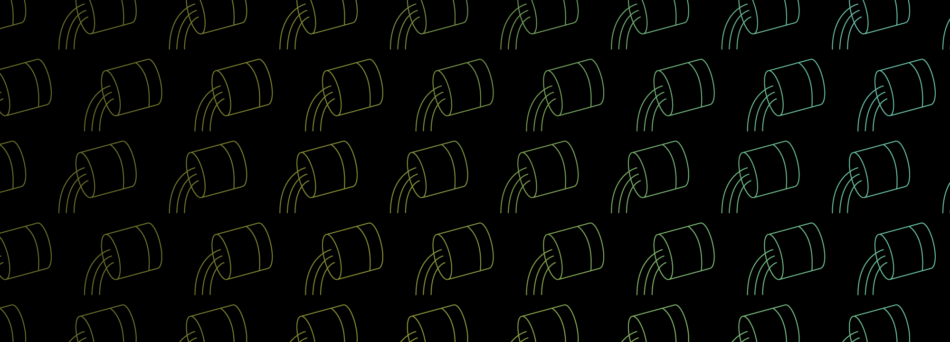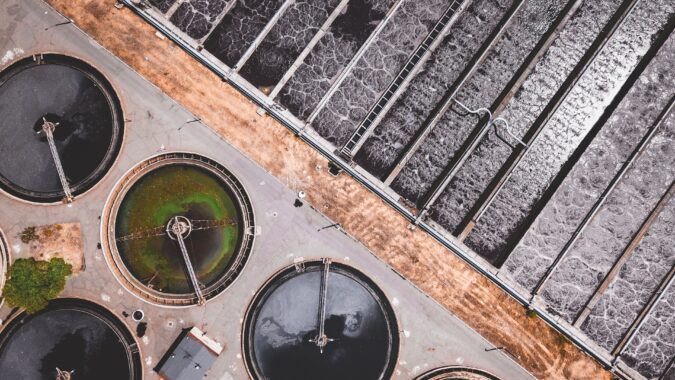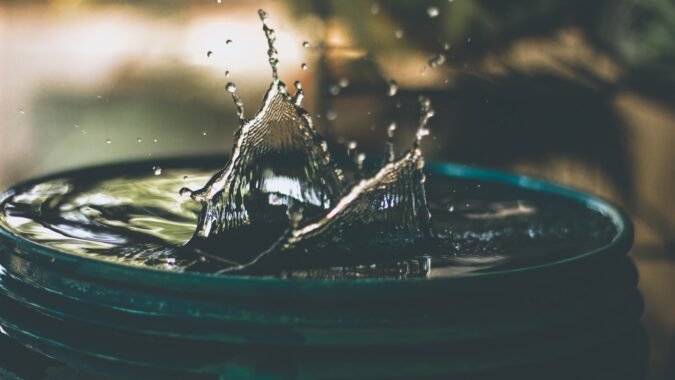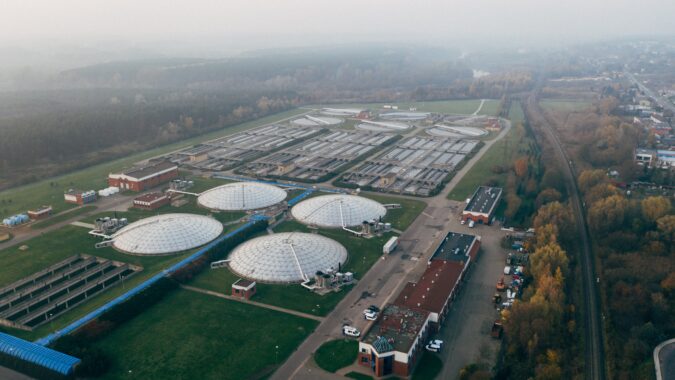
Liquid Waste Disposal
Liquid waste from businesses requires proper disposal to avoid polluting nearby water and contaminating the land. Delaying or not getting rid of liquid waste could breach regulations, damage the environment, your company’s finances and reputation. Waste liquid disposal can be difficult if your organisation doesn’t have the appropriate equipment and personnel, but Business Waste can help.
Ensure your business remains compliant with the relevant liquid waste regulations, protects the environment, and saves money with our liquid waste management services. We can arrange collection of used oils, wastewater, and other liquid waste for businesses across the UK in a safe and efficient way, with environmentally friendly disposal methods. Call 0800 211 8390 or contact us online for a quick quote for liquid waste removal.
Get a free liquid disposal quote
Get a fast FREE quote for your liquid waste removal
- Free quote within 1 hr
- Any type of liquid waste
- FREE containers and delivery
- We cover all of the UK
Contents
Liquid waste
collection
If you’re unsure whether we can dispose of your liquid waste, call our helpful customer care team for more information and advice. We can provide organisations across the country with expert liquid waste collection and removal, with professional teams strategically placed around the UK. This ensures every business has an accredited liquid waste removal service on your doorstep.
Whatever the size of your business, type, and amount of liquid waste you need removing, we’ll work to find a solution. We understand businesses have different waste management requirements, so offer a tailored liquid waste management system to meet your needs.
Arrange collection and our team will deliver free bins to an agreed and accessible location. Fill these up and store safely, then we’ll come and collect at an agreed time and date – whether it’s on a daily, weekly, fortnightly, or one-off basis.
Speak to one of our helpful team today by calling 0800 211 8390. They can help if you have any questions about liquid waste management and provide a free quote for removal. Get in touch and organise liquid waste collection for your business.
Liquid waste
removal
For effective liquid waste removal, we provide free bins and containers to store any waste liquid you produce at the source. This includes a wide range of barrels, drums, and IBC containers in various sizes to suit the amount of waste you create. You can place them anywhere on your premises convenient for storing such waste.
We deliver containers for free, so you can fill them up with appropriate types of liquid waste. Once they’re full, our licensed waste carriers will come and remove them at an agreed time and date – you just pay for the collection. Ensure the containers are in an accessible place so our drivers can remove them.
Arrange liquid waste removal near you on a daily basis or less frequent weekly and fortnightly basis. Choose a removal schedule that suits your organisation, depending on the size of containers you use, the type and amount of waste liquid produced. Contact us online to book liquid removal for your business today.

Liquid waste
containers and bins
Safe and legal liquid waste storage is essential to protect humans and the environment before your waste is collected for disposal. Use the right liquid waste container for each amount and type of waste liquid your business produces – especially making sure that hazardous and non-hazardous materials are separate.
There are a wide range of liquid waste bins available to meet your needs. These include drums, containers, and bins to store and remove all sorts of waste. Explore some common liquid waste containers, drums, and bins and arrange collection for your business.
Who needs
liquid waste disposal?
Businesses that produce liquid waste have a duty of care to ensure it’s dealt with in a compliant manner. It’s not just those generating sewage effluent or waste from manufacturing that may need waste liquid disposal though. The liquid waste definition also includes oils – both edible and the motor variety – paint, containers of chemicals or solvents and battery acid.
From one-off contaminated water removal to regular disposal of little or large amounts of unusable liquids, if your business produces fluid waste, it needs getting rid of properly – as it can’t go to landfill. Some of the main industries that require liquid waste disposal include:
- Agricultural – wastewater from the land, animal feed, sludge, and more.
- Automotive – motor oil and lubricants used in garages.
- Dry cleaning – liquids containing chemicals used in cleaning products.
- Factories – all sorts of waste liquid from manufacturing processes.
- Kitchens – edible oils used for cooking, as well as kitchen cleaning products.
Liquid waste
disposal regulations
Since 2010 the Environment Agency regulations mean liquid waste cannot go to landfill. Each substance has different guidelines for its removal but while most liquid waste has a safe route to disposal or recycling, hazardous liquid waste must be handled carefully. Under the Environment Agency’s regulations, businesses that produce hazardous liquid waste must:
- Store hazardous liquid waste safely
- Use the appropriate danger symbols on the waste container
- Register each site where hazardous waste is produced
- Only move or transport hazardous waste with the correct identifying paperwork
- Keep full auditable records of all waste transfers
- Ensure waste is managed safely and correctly by competent people
The same duty of care applies to waste management companies when the waste is transferred to them. This should be to a third party that can treat or reduce the waste until it’s either recyclable or rendered harmless. Liquid waste handling is a specialism in its own right. However, companies need to be aware of the procedures to ensure that no harm is done.
Our professional waste management providers can offer your organisation low-cost and efficient liquid waste removal. We can remove both hazardous and non-hazardous liquid waste, while ensuring your business is fully compliant with the laws on hazardous waste removal.
How does liquid
waste collection work?
-
Select your free bins
It’s quick and easy to organise commercial waste collection for your business.
Simply start by telling us the:
- Type of waste you need removing
- Size of bins you require
- Number of bins you want
We’ll provide you with a free quote.
-
Arrange delivery
When you’re happy with the type, number, and size of free bins, tell us when you need your bins delivering.
Let us know about any access issues where you want the bins delivering – such as locked gates, access codes and times. We’ll get you up and running in no time.
-
Fill up your bin
After the free bins arrive at your chosen location, fill them up with the agreed waste type.
Make sure you remain within any weight limits for the specific waste type and bin size.
-
Get your business waste collected
We’ll arrange waste collection at a time and frequency to suit you and the amount of waste you have.
As featured in…
What is
liquid waste?
Liquid waste is any kind of fluid your business produces that’s unusable. It could be generated as a by-product during a manufacturing process, leftover waste from the food and drinks industry, or contaminated motor oil from a garage that you can’t use. Depending on the type of liquid waste, it may be hazardous or non-hazardous too.
Some of the most common examples of liquid waste removal businesses require include:
- Flood water
- Liquid food waste
- Sludge removal
- Hazardous liquid waste
- Sewage removal
- Waste oil
- Contaminated water removal

How to dispose of
liquid waste
Badly handled liquid waste is especially dangerous, as a spill could make its way into water tables, ponds, and rivers – leading to a devastating effect on wildlife. The Environment Agency has sweeping powers over such spills, and courts can impose unlimited fines and prison sentences to negligent companies and individuals.
Liquid waste presents its own challenges to the commercial waste management sector and needs to be dealt with carefully. You must store liquid waste in secure containers, drums, or bins depending on the type of waste. The easiest way to find out the right kind of bin for liquid waste storage is by speaking to one of our team, who can advise you on the right size and type of storage.
We can provide your organisation with free bins to remove large and small quantities of hazardous and non-hazardous liquid waste. To dispose of your waste liquid, simply fill these bins and clearly label each one – whether it’s clean or you need contaminated water removal. Then move to the agreed collection point and time and we’ll transport it to a facility near you for treatment and disposal.
To help waste liquid disposal run smoothly, your liquid waste storage area should be as close to the collection point as possible. Ensure any drums or bins are large enough to contain the waste with the lid secured. Where possible you should store liquid waste indoors or at least under a roof to prevent contamination.
Liquid waste
disposal methods
Once liquid waste leaves your business premises, it’s taken to a recycling facility for treatment and disposal. The liquid waste disposal method applied depends on the type of waste and treatment plant. Methods can include:
- Dewatering – only for non-hazardous liquid waste. This process removes the water from the waste usually by using a centrifuge, belt filter, or plate and frame filter. These separate and leave behind solid waste, which can be recycled as compost or sent to landfill depending on the waste type.
- Sedimentation – also for non-hazardous waste, sedimentation has been used for thousands of years to separate liquid and solid waste. It’s common for sewage treatment as the wastewater travels through tanks with the solids rising and skimmed off the top. The remaining water is filtered and treated, while the solid waste may be recycled or go to landfill.
- Incineration – hazardous liquid waste like chemicals and acids can be incinerated in combustion chambers, heated up to 850°C and 1150°C. It generates ash, which goes to landfill but saves space, and the heat may power steam turbines to generate electricity.
- Composting – depending on the type of liquid waste, once the water is removed it can be turned into organic fertilisers. Nutrients such as sodium, potassium, and nitrogen enrich the soil in a green way to get rid of liquid waste.
- Solidification – rather than removing water, this liquid waste disposal method adds fly ash, sawdust, or lime dust to turn it into a solid. With some hazardous liquid waste this can convert the contaminants into less toxic forms.

Liquid waste
facts
More than 11 billion litres of wastewater are collected in UK sewers every day. This travels through around 347,000km of sewers and ends up at 9,000 sewage treatment plants. Of this sewage, about 3.6 million tonnes of sludge are treated in the UK each year, with most of it (78%) being spread across agricultural land.
In the US, it’s estimated that around 900 million litres of oil are disposed of improperly every year – going to landfill, being poured down drains and into storm sewers. Recycling this could save the country more than one million barrels of oil a day.
Read our reviews
James was very helpful and to be honest since starting with this company the service has been excellent.Christeen Norfolk
Liquid waste
FAQs
-
What is liquid waste pollution?
Waste liquid can spread from its source or storage if not carefully secured in an appropriate container. As it may contain contaminants, if it comes into contact with other liquids or soaks into the ground it can cause pollution. Should this water be drunk or foods eaten that are grown in polluted soil then it can harm humans and animals.
-
What are sources of wastewater?
Wastewater simply refers to any used water that requires treating to be used again. Many different industries and businesses can produce wastewater during their daily operations. There are various sources of wastewater, which can include:
- Domestic – bathing, toilet flushing, and laundry
- Commercial – cleaning, processing, and drainage
- Industrial – chemicals and oils used in manufacturing
- Agricultural – surface run-off from fields, animal feed, and cleaning
- Storm and surface water – run-off from the land
- Sewage – sewer inflow or infiltration
-
What is domestic liquid waste?
It’s not just businesses that produce waste liquid, at home there are various sources of domestic liquid waste. These commonly include leftover cleaning products that you shouldn’t pour down the drain, cooking oil, and any drinks. Wastewater from your kitchen and bathroom, alongside sewage, also counts as domestic liquid waste but this should be connected to your local sewage system, unless you have an unconnected chemical toilet.
-
Why is liquid waste management important?
Effective liquid waste management is important both at work and in the home to protect human health and the environment. Improper disposal can lead to contamination of water and land, leading to contamination and sickness in humans and animals that use these sources. It may ruin crops and spread disease – which proper management can avoid.
As a business, liquid waste management is also important to ensure you meet your corporate responsibilities and abide by any legal regulations. This is essential especially when disposing of hazardous liquid waste, to avoid your company facing any fines for improper disposal.
Get your FREE liquid waste disposal quote
Get a fast FREE quote for liquid waste collection
- Free quote within 1 hr
- Any type of liquid waste
- FREE bins and delivery
- We cover all of the UK